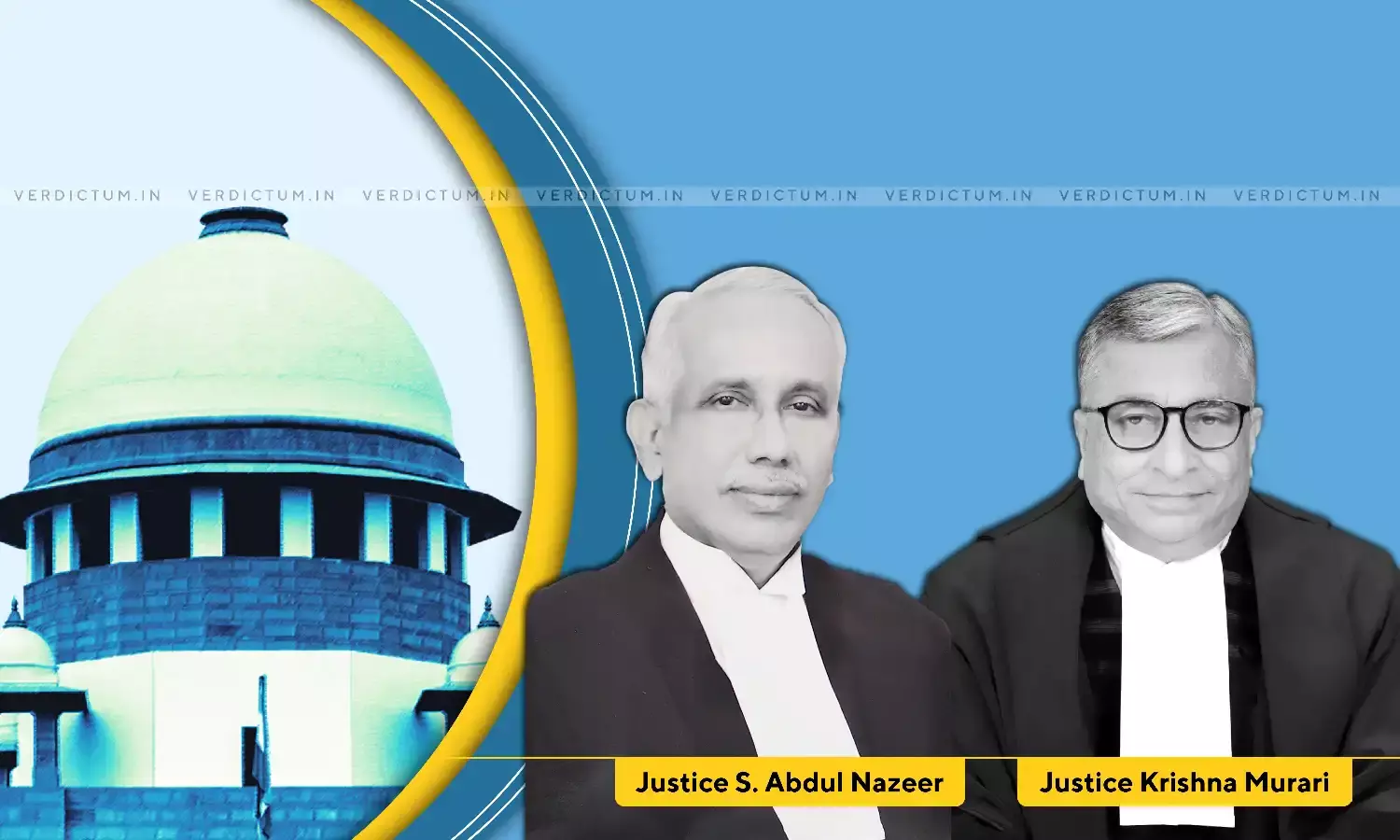Arbitrator Can't Award Pendente Lite Interest When It Is Expressly Barred In The Arbitration Agreement - Supreme Court

A two-judge Bench of Justice S. Abdul Nazeer and Justice Krishna Murari has held that if a contract contains a specific clause that expressly bars payment of interest, then it is not open for the Arbitrator to grant pendente lite interest.
The Court observed, "When there is an express statutory permission for the parties to contract out of receiving interest and they have done so without any vitiation of free consent, it is not open for the Arbitrator to grant pendent lite interest."
An appeal was preferred before the Supreme Court against the decision of the Delhi High Court in an appeal under Section 34 of the Arbitration and Conciliation Act, 1996 denying pendente lite interest on the award amount to the Appellant.
In this case, a dispute arose between the parties pursuant to a contract entered into between the Appellant and Respondent. The Appellant approached the Delhi High Court under Section 11 of the Arbitration and Conciliation Act. The Court appointed an Arbitrator to adjudicate the dispute. The Arbitrator concluded that there was no prohibition in the contract about the payment of interest for the pre-suit, pendent lite, and future period. The Appellant was awarded pendente lite and future interest at the rate of 10%.
The award was challenged by the Respondent before the Delhi High Court on the ground that the Arbitrator had traveled beyond the terms of the contract in awarding pendente lite interest on the award amount, as the same was expressly barred by the terms of the contract. The Single Judge had set aside the award of pendent lite interest in the impugned award of the arbitrator. This decision was also upheld by the Division Bench of the High Court.
The Apex Court, after analyzing the provisions of the Arbitration and Conciliation Act, opined that the provisions of the act give paramount importance to the contract entered into between the parties and also specifically restricts the power of the arbitrator to award pre reference and pendente lite interest when the parties themselves have agreed to the contrary.
The Court held, "In the present case, clause barring interest is very clear and categorical. It uses the expression "any moneys due to the contractor" by the employer which includes the amount awarded by the arbitrator."
While referring to various precedents, the Court observed, "Therefore, if the contract contains a specific clause which expressly bars payment of interest, then it is not open for the arbitrator to grant pendente lite interest."
The next issue which was dealt with by the Court was whether Clause 17 of the Contract restricting payment of interest is ultra vires Section 28 of the Indian Contract Act, 1872.
The Court made a detailed analysis of Section 28 and observed, "A lawful agreement to refer the matter to arbitration can be made a condition precedent before going to courts and it does not violate Section 28. No cause of action then accrues until the Arbitrator has made the award and the only amount awarded in such arbitration is recoverable in respect of the dispute so referred."
Regarding the applicability of Section 3(3) of the Interest Act, the Court held, "Section 3(3)(a)(ii) states that the Interest Act will not apply to situations where the payment of interest is "barred by virtue of an express agreement."
The Court further asserted that Clause 17 of the contract was not ultra vires in terms of Section 28 of the Indian Contract Act.
In the light of these observations, the Court dismissed the appeal and upheld the judgment of the Delhi High Court.

